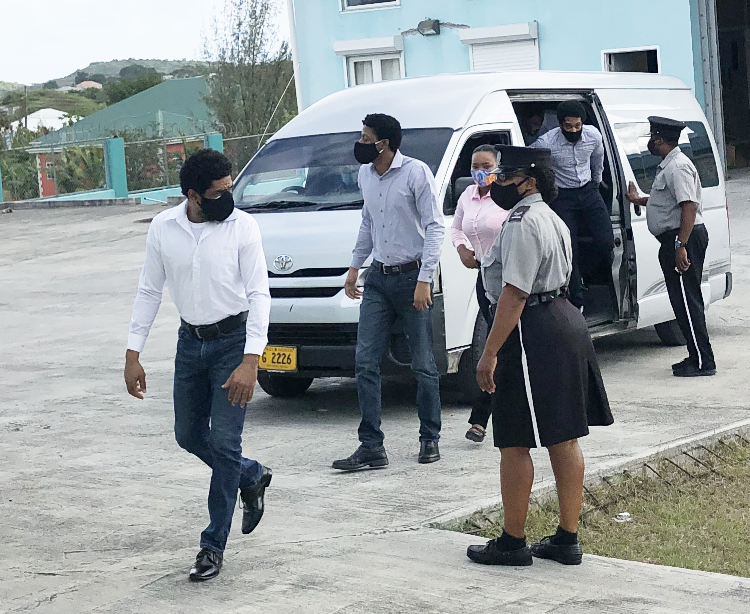
By Orville Williams
“A good day for justice”, remarked defence attorney Andrew O’Kola who commended the actions of Magistrate Ngaio Emanuel-Edwards in upholding an order she issued last month.
That specific order was for the prosecution to make key information available to the defence representing the four accused in the Bruce Greenaway murder case.
During yesterday’s hearing in the All Saints Magistrate’s Court, Emanuel-Edwards noted that the prosecution had initially expressed no objections, last month, to the defence’s request for access to some police station diaries – which record the movement of on-duty officers – dated in and around the time Greenaway was reported missing.
An order was then given “about three weeks ago”, according to the magistrate, for the prosecution to make access to those diaries available to the defence.
She further read that the prosecution subsequently changed its tone, saying the diaries that were being requested did not form part of their investigation and advised the defence to instead request access to the diaries from the Office of the Commissioner of Police.
Notwithstanding that advice, Magistrate Emanuel-Edwards declared in yesterday’s hearing, that the court stands by its order for specific disclosure and notified the prosecution that it has 21 days to make the diaries available to the defence.
Speaking to Observer after the hearing, O’Kola explained that though the diaries were not used as part of the prosecution’s investigation, they could prove vital to the defence’s case.
“The diaries are, in fact, very [important]. In terms of counsel for the defendants being able to execute their defence, we have to make sure that every line of inquiry that could possibly vindicate our clients is explored. In so doing, the diaries become critical, given information that has come to the defence.
“The challenge with that is the police may or may not know what line of inquiry we’re seeking to further or engage [and] they form the view that the only thing the defence needs to be concerned with is that which they have provided for us.”
While he applauded the magistrate for her decision, O’Kola scrutinised the actions of the prosecution, who he suggested violated the order for specific disclosure.
“The very fundamentals of the criminal justice system rest on disclosure. It baffles me and it leaves the door open for unnecessary and wild chatter, when the police seek to withhold the disclosure of a police movements diary during the period which is closely linked to the disappearance of the deceased. We have a problem with that.
“What’s more fundamental than that, for the defence, is where a court gives an order, no one is above that order. It ought to be complied with until that order is set aside, modified or varied in one way or another. The justice system relies on us respecting the judges, irrespective of whether or not we might disagree with their position. So, we’ve got to protect the integrity of the justice system.”
The four accused in Greenaway’s murder all appeared at the hearing yesterday, along with their attorneys, O’Kola and Wendel Robinson, who held on behalf of Lawrence Daniels.
The matter will next be called to the court on February 24, when the magistrate is scheduled to make a decision on a no-case submission made by the defence.
Father-of-two Greenaway’s body was found at Indian Creek in April last year, four days after he was reported missing. An autopsy revealed he had been strangled.
